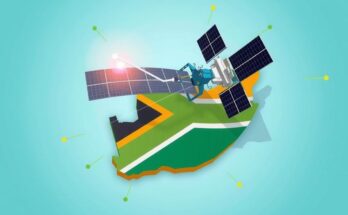Nigeria faces an urgent need to integrate AI in healthcare diagnostics amidst a growing global market. While the country has made progress since traditional medicine, its current reliance on outdated practices hinders its competitiveness. Immediate investments in infrastructure, training, and ethical regulations are essential to leverage AI’s advantages. By embracing this technology, Nigeria not only improves healthcare quality but also unlocks significant business opportunities for the future.
The healthcare AI sector is rapidly expanding worldwide, with projections indicating a market value of $102.7 billion by 2028, as reported by Fortune Business Insights. Within this growth, medical diagnostics will play a significant role, with AI technologies revolutionizing disease detection and management. Hence, Nigeria faces a crucial choice: either continue relying on imported diagnostic services or cultivate indigenous AI-enhanced systems tailored to local needs.
Historically, Nigeria’s healthcare system began with traditional remedies and community-based care, where diagnoses stemmed from patient-reported symptoms rather than scientific methods. The introduction of Western medicine during colonial periods marked a shift, establishing structured healthcare through missionary hospitals, which laid the foundation for today’s public health services and diagnostic laboratories. Although diagnostic facilities are increasingly prevalent today, Nigeria still lags behind global standards in healthcare delivery.
As we approach 2025, those relying on traditional diagnostic methods devoid of AI integration risk obsolescence. Countries at the forefront of healthcare technology utilize AI in radiology and imaging, with tools like Google’s DeepMind and PathAI outperforming human diagnosticians in accuracy and efficiency. Moreover, AI’s predictive capabilities enable the identification of potential health risks before they manifest, enhancing prevention and early intervention efforts.
Point-of-care AI diagnostics represent a transformative opportunity for Nigeria, potentially enabling advanced testing capabilities in remote areas without laboratory access. Envisioning a future where AI fully automates lab processes, assists medical professionals, and provides mobile diagnostics facilitates a comprehensive shift in healthcare delivery. Indeed, AI-powered precision medicine promises personalized treatment strategies based on individual genetic and biological profiles.
The economic implications of integrating AI into healthcare are vast, with PwC estimating a $15.7 trillion boost to the global economy by 2030, making the healthcare sector a significant benefactor. This paradigm shift represents not merely a medical evolution but also a substantial business opportunity for Nigeria. The pressing question remains: Will Nigeria engage in this clinical shift or continue importing costly services?
Assessing the current landscape, Nigeria’s healthcare infrastructure stands inadequately prepared for an AI transformation, with inadequate electricity, erratic internet access, and outdated medical technology presenting significant challenges. Furthermore, the lack of AI training for healthcare professionals hampers the effective deployment of these advanced tools.
Nonetheless, this situation poses a unique chance for Nigeria to leapfrogging forward by directly embracing AI-driven diagnostic solutions. Immediate attention must be directed toward enhancing healthcare infrastructures, such as improving internet connectivity and updating data management systems. Additionally, investing in the training of healthcare professionals in AI technologies is critical for the successful adoption of these innovations.
To realize the full potential of AI in diagnostics, establishing robust data protection regulations and ethical guidelines is essential. The integration of AI into the medical diagnostic field opens a wealth of business opportunities. Entrepreneurs can launch AI diagnostics startups, creating AI-driven diagnostic centers offering affordable and efficient healthcare solutions tailored to Nigeria’s specific needs.
Moreover, investing in health-tech devices reflects the demand for tools engineered for Nigerian contexts, conducive to local diseases and genetic profiles. The establishment of training facilities focusing on AI literacy will equip medical professionals to navigate this new technology effectively. Furthermore, attracting international investments in Nigeria’s health-tech sector could enhance accessibility to innovative medical solutions across West Africa.
AI has become an imperative aspect of modern healthcare across all sectors, and Nigeria must fully embrace this technology. The integration of AI in diagnostic processes promises significant advancements, reducing errors and improving the delivery of affordable healthcare services. For entrepreneurs, this technological wave offers immense potential for job creation and economic growth, making timely engagement essential. The call to action is clear: the revolution in medical diagnostics through AI must commence immediately to ensure Nigeria does not fall behind in healthcare advancements.
In summary, the integration of AI in Nigeria’s healthcare diagnostics presents both a pressing challenge and a monumental opportunity. By investing in infrastructure, training, and ethical guidelines, Nigeria can leapfrog into a future that not only enhances healthcare delivery but also revitalizes its economy. The potential benefits of adopting AI in diagnostics extend beyond healthcare improvements; they represent a strategic business avenue for innovation and investment. A pivotal moment lies ahead; the imperative for action is now, as the success of Nigeria’s healthcare system relies on embracing this technological revolution.
Original Source: businessday.ng




